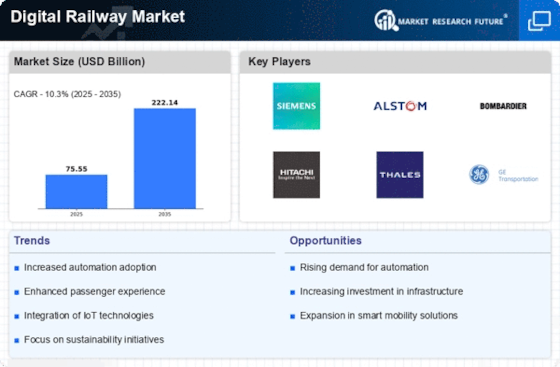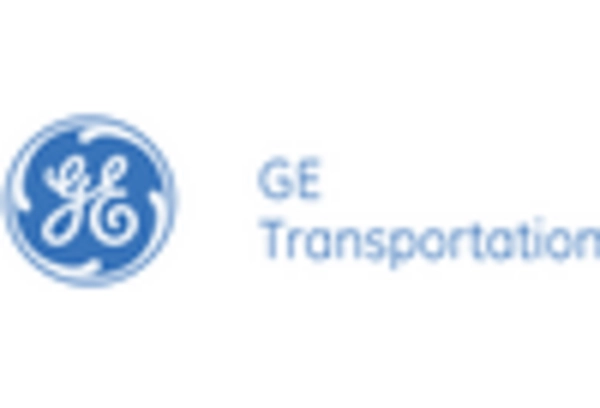Market Share
Digital Railway Market Share Analysis
The Digital Railway market is going through a wave of radical change involving emerging trends which are transforming how the rail industry works. One noticeable trend in this regard has been internet of things (IoT) technology integration in railways. As such, IoT is being embraced by rail companies for greater efficiency during their operations as well as monitoring health status of trains and passengers’ right on board these locomotives. This means that sensors as well as connected devices are contributing to real-time data collection while allowing for proactive approach to potential issues in order that reliability may be enhanced leading to reduced downtime through predictive maintenance programs.
Another vital trend that is affecting the digital railway business is automation. With technologies like automatic train control and driverless trains, implementation of automation simplifies operations and improves security. These systems assist in optimized train schedules, efficient traffic management and fewer human errors that lead to better general railway performance. Urban transit systems which aim at serving growing populations faster and more reliably are particularly worried about this development.
Digital Railway market is also relying on Data analytics and artificial intelligence (AI). Modern analytic tools can ingest large volumes of data coming from trains, infrastructure and passenger systems. This information is then analyzed by algorithms to optimize train schedules, predict possible disruptions, and improve overall system performance. Derived insights from data analytics allow railways to make informed decisions that enhance efficiency and provide seamless experiences for travelling customers.
In the Digital Railway market, Cybersecurity has become one of the key concerns. Railways are increasingly vulnerable to cyber threats due to increased connectivity and reliance on digital technologies which could compromise safety or interrupt operation support system availability. As a result, there is a growing focus on robust cybersecurity measures aimed at securing critical infrastructure, sensitive data as well as communication systems. To ensure an operative environment that is both secure and resilient, cybersecurity solutions have become integral parts of digital railway systems.
The Digital Railway Market has been revolutionized by the adoption of 5G technology in terms of communication processes within it. The low latency features combined with high speed capabilities of 5G networks facilitate reliable communication between trains, infrastructure and control centers. In turn this leads to improved signalling mechanisms; better safety components; real-time transmission & reception of large amounts of data amongst others. The roll out is already enabling such new applications as augmented reality for maintenance works or enhanced passenger connections.


















Leave a Comment